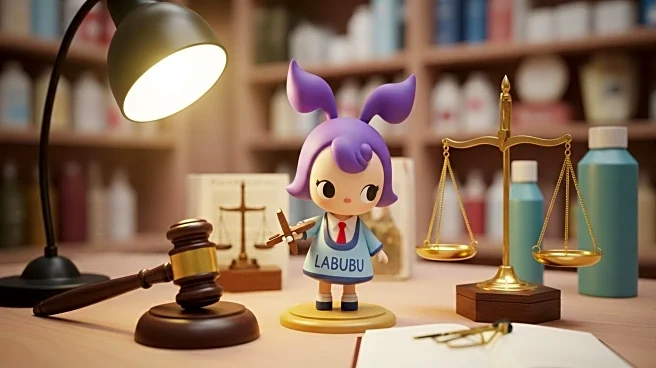What's Happening?
Pop Mart has intensified its legal action against 7-Eleven, Inc. and several franchise operators, accusing them of selling counterfeit Labubu dolls. The lawsuit, initially filed in July in the Central District of California, claims violations of federal trademark, copyright, and unfair competition laws. Pop Mart's amended complaint, filed on September 26, expands the list of defendants and provides detailed evidence of alleged infringement, including social media posts and in-store sales. The company asserts its intellectual property rights over the Labubu character, which has become a global phenomenon, and seeks to hold 7-Eleven accountable for the actions of its franchisees.
Why It's Important?
This case highlights the challenges faced by companies in protecting their intellectual property in a global market. For Pop Mart, the outcome could set a precedent for how far rights-holders can go in holding parent companies responsible for the actions of their franchisees. A ruling in favor of Pop Mart could lead to stricter controls and responsibilities for franchisors over their franchisees' operations, potentially impacting business models across various industries. The case also underscores the importance of brand integrity and the financial implications of counterfeit goods on legitimate businesses.
What's Next?
The legal proceedings will continue as Pop Mart seeks to prove vicarious liability against 7-Eleven, Inc. The company must demonstrate that 7-Eleven was either complicit in or willfully blind to the sale of counterfeit goods. The outcome of this case could influence future legal strategies for companies facing similar issues with franchise operations. Stakeholders in the retail and franchising sectors will be closely monitoring the case for its potential impact on franchise agreements and intellectual property enforcement.









